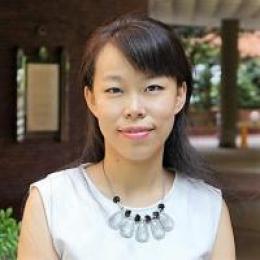Sept 2024 Entry
4 years (Full-time)
5 years (Part-time)
48 (24 credits for coursework and 24 credits for thesis)
Doctor of Applied Language Sciences (DALS) is not a research PhD programme, it is a taught doctoral programme that students are required to take 24 credits of coursework and 24 credits of thesis writing.
Applications are considered on a rolling basis. Eligible applicants will be invited for admission interviews shortly after the initial application deadline.
Please prepare all required documents listed under the tab of Additional Documents Required. Missing documents will delay the selection process.
Students who wish to extend their studies beyond normal duration can submit such request to the Faculty of Humanities for consideration, as appropriate.
Important Notice: The Faculty of Humanities and DALS programme are not affiliated with any outside agencies or consultancies that claim to provide assistance in preparing applications, references, interviews, or vetting for recruitment procedures. The decision for selection and recruitment lies entirely with the faculty and university; any applications containing inauthentic documents will risk immediate disqualification.
What's New
Programme Aims
The Doctor of Applied Language Sciences (DALS) programme aims to help nurture and develop future leaders in language-related professions. Students will investigate developments in language sciences and develop an advanced understanding of the inextricable link between theory and practice. They will be able to integrate linguistic knowledge and research skills with reflective practice in coping with the demands and development of their careers as language professionals in this age of globalisation and digitalisation.
Characteristics
DALS curriculum provides four focus areas or areas of enquiry for the students to choose from and within which to develop their specialism(s):
-
Language Education;
-
Intercultural and Professional Communication;
-
Translating and Interpreting; and
-
Speech Sciences, Language Processing, and Cognition.
Significant features of the programme are:
-
Interdisciplinary, cross-linguistic and/or cross-cultural perspectives of epistemology;
-
Integration of international perspectives and local context; and
-
Interaction with and dialogue between academics and practitioners.
Programme Learning Outcomes
Upon completion of their studies, students will be able to:
-
Demonstrate an advanced understanding of current approaches and theories that underpin the study of language;
-
Develop a sophisticated understanding of issues in intercultural communication and relate this understanding to their professional practice and/or chosen area of study;
-
Develop teamwork and leadership skills for future career development;
-
Critically evaluate the literature and current trends in their chosen area of study, primarily second language education, intercultural and professional communication, translating and interpreting, or language and information technology;
-
Adopt appropriate research design and method(s) to obtain and analyse primary data from language and profession-related areas;
-
Use appropriate information technology tools for the evidence-based investigation of aspects of language and professional communication; and
-
Express complex ideas clearly, accurately and in compliance with the conventions governing idea presentation in the academic and professional contexts.
Research Centres and Global Partners
The Faculty of Humanities collaborates with a number of internationally prestigious institutions as professional and academic partners to ensure that students can benefit from contributions overseas as well as local scholars, researchers and practitioners through formal and informal exchange initiatives. Our research centres include:
- International Research Centre for the Advancement of Health Communication
- Research Centre for Chinese History and Culture
- Research Centre for Language, Cognition, and Neuroscience
- Research Centre for Professional Communication in English
- The PolyU - Peking U Research Centre on Chinese Linguistics (in collaboration with Peking University)
Programme Structure
Students are required to complete 48 credits for graduation, of which 24 credits are assigned to coursework and 24 credits to thesis preparation and writing.
Coursework (6 credits Compulsory + 18 credits Elective + 24 credits Thesis)
Foundation Subjects (3 credits each)
-
Research Methods for Applied Language Sciences I (compulsory)
-
Trends in Applied Language Sciences (compulsory)
-
Advances in Sociolinguistics
-
Discourse Analysis and Corpus Linguistics
-
Linguistic Theories
-
Guided Study in Chinese Grammar
Focus area: Language Education (3 credits each)
-
Curriculum and Assessment
-
Psycholinguistics and Language Acquisition
-
Research Methods for Second Language Education
Focus area: Intercultural and Professional Communication (3 credits each)
-
Glocalisation and Media Communication
-
Intercultural Communication
-
New Media
-
Professional and Organisational Communication
Focus area: Translating and Interpreting (3 credits each)
-
Interpreting Studies
-
Theories of Translation
Focus area: Speech Sciences, Language Processing, and Cognition (3 credits each)
-
Advanced Topics in Psycholinguistics and Neurolinguistics
-
Advanced Topics in Research Methodology for Language Sciences
-
Computational Linguistics
-
Corpus-based Linguistic Research
-
Data Analytics for Applied Language Scientists
-
Lexical Semantics and Ontology
-
Speech Processing
Thesis
-
DALS Thesis I (Seminar and Proposal Development) (9 credits); and
-
DALS Thesis II (Thesis Writing) (15 credits)
Academic Support Programme (non-credit bearing)
-
Advanced Academic English Literacy: Presenting Effectively
-
Advanced Academic English Literacy: Reading and Writing
* Some Elective Subjects may be offered in alternate academic year.
Focus Areas of Study
With collaboration across three units in the Faculty of Humanities (the Department of Chinese and Bilingual Studies, the Department of English and Communication, and the English Language Centre), and the Department of Computing in the Faculty of Engineering, the interdisciplinary DALS curriculum comprises four areas of enquiry.
1. Language Education
This area focuses on the frameworks of knowledge and skills that underpin language education theories of linguistics and language learning, discourse and corpus analysis, and the role of language in society and on language education itself, particularly trends in teaching, learning, curriculum development and assessment. Another important focus is on the processes involved in first and second language acquisition.
2. Intercultural and Professional Communication
The emphasis here is on the key concepts, issues and practices in intercultural, organisational and professional communication, and on analysing spoken, written and multimodal discourses in a range of intercultural and professional contexts. The area addresses the need for individual professionals to acquire expertise in relevant fields of knowledge, theoretical and conceptual frameworks, methodologies, applications and frameworks of evaluation to comprehend the complexities of professional communication in intercultural and media-based settings. The subjects associated with this area also aim to enhance both professional and personal communicative competence.
3. Translating and Interpreting
This area focuses on providing professional training to university teachers and those who are currently working in the fields of translation and interpreting but do not hold formal academic credentials. The area encompasses the understanding of general linguistic theories, rhetorical studies in cross-cultural contexts, contemporary theories of translation and interpreting, and recent discoveries in typological divergencies amongst languages.
4. Speech Sciences, Language Processing, and Cognition
This focus area is built on the knowledge of how language is processed, with the intention to apply this knowledge to areas such as communication disorders, digital humanities, language and speech sciences, language technology and neuro-cognitive approaches to language use and language learning. Language technology, including computational and neuro-cognitive technologies, permeates many aspects of life and has an indispensable role to play in the delivery of language policies, language education and language related health care, as well as in a wide range of content industries and the knowledge economy. A critical understanding of how language is processed in the mind as well as language processing technologies is an essential part of a professional’s competence. The focus area is suited for professionals whose work is related to one or more of the following academic fields: Communication Disorder and Speech Therapy, Digital Humanities, Health Informatics, Natural Language Processing and Neuro-cognitive Linguistics.
48 (24 credits for coursework and 24 credits for thesis)
Prof. Dennis TAY
PhD, Linguistics
In addition to meeting the academic entrance requirements, applicants are required to have substantial and relevant work experience, i.e.,
-
A Master’s degree or equivalent in a related field PLUS five years post-undergraduate work experience
OR -
A Master’s degree or equivalent in a related field PLUS two years post-Master's work experience
The English language requirements for those who do not have a degree from a recognised university at which the language of instruction is English are:
-
an overall International English Language Testing System (IELTS) score of at least 6.5 (all sub-scores should be at 6.0 or above); or
-
at least 90 in the Test of English as a Foreign Language (TOEFL) for the Internet-based test (with a writing score of 23 or above).
Comparable scores obtained from other internationally recognised public examinations may be considered.
All English language test scores are considered valid for five years after the date of the test.
Individual cases will be considered on their own merits. Applicants may be required to attend interviews and/or tests to demonstrate that they possess the required level of language proficiency for carrying out research in their area of enquiry.
For further programme information, please contact:
Office of the Faculty of Humanities
Email: fh.enquiry@polyu.edu.hk
Tel: (852) 3400 8219 / 3400 8213
For information on academic matters, please contact:
Prof. Dennis TAY
Email: dennis.tay@polyu.edu.hk
Tel: (852) 3400 3654
We offer scholarships exclusively to outstanding students with excellent academic merit and teaching assistantships to qualified candidates.
PolyU reserves the right to change or withdraw the scholarship at any time. In case of any dispute/disagreement, PolyU’s decision is final.
3
Please click here to download.
HK$7,250 per credit for local and non-local students
- The personal statement should be confined to two-page A4 size (in English).
- Two recommendation letters (in English) should be printed on A4 size paper with company or institution letterhead and the signature of the referrers, at least one recommendation should be from the past or present employer.
- Applicants should input both their academic qualifications of undergraduate and postgraduate studies in the online admission system, and upload the relevant transcripts and certificates.
- Official English-translated copies must be attached if the original transcripts are not in English. The interpretation of grades (in English) is also required.
- The Research Proposal should be written in English and to include information such as the name of proposed Chief Supervisor, Project Title, Project Objectives, Scope and Background of Research, Research Methodology and References.
- Previous/Current employment certificate(s)/letter(s) to prove your work experience (preferably in English).
- List of research or consultancy projects involved and list of publications, if any (preferably in English).
- Please use English to fill in the entire application form (except for the Chinese name).







